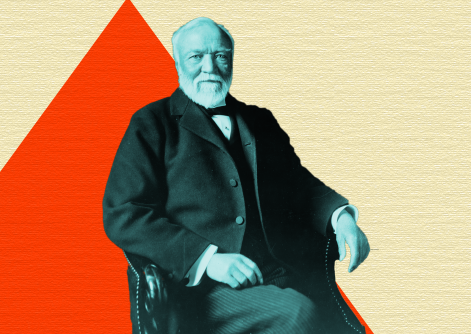It may hurt to hear this if, like me, you look back fondly at dear alma mater, but it’s true. If you just pony up when the alumni fund asks or -- if you can write checks with lots of zeroes -- you hand a college president a whopping sum, you’re probably doing more harm than good.
Most of the nation’s largest donations in any given year go to colleges -- see the Institute for Jewish and Community Research report on "Mega-gifts in American Philanthropy" -- yet colleges have several problems donors overlook. First, those large gifts typically go to schools whose endowments are larger than the GDPs of entire nations. Second, colleges have a track record of soaring tuition rates that make the health care sector look miserly. (See Richard Vedder’s invaluable Going Broke By Degree: Why College Costs Too Much and visit his blog at the Center for College Affordability and Productivity.) Third, the academic rigor of colleges, even the most prestigious, is not impressive and only heading lower. I’ve had summer interns from Harvard I wouldn’t trust to spell-check a paragraph, and the proportion of college students who require remedial courses is scandalous.
An even bigger scandal is the way students, who arrive with little knowledge of how America was founded and is designed to function, often leave college years and hundreds of thousands of dollars later still more ignorant of what we used to call high school civics. (See the studies by the Intercollegiate Studies Institute’s American Civic Literacy Program and by the American Council of Trustees and Alumni.)
But worst of all, if you just hand over money to your college’s fundraisers, you have little idea what they will do with it. Even if they’ve made vague promises to you, they’re unlikely to keep them. For instance, Martin Morse Wooster once surveyed the nation’s professors who held endowed chairs whose very names indicated that the donors established the chairs to boost free enterprise. Wooster found that the majority of these chairs supported the posteriors of profs with contempt for free enterprise. Then there’s Princeton’s ugly dealings with the Robertson family, whose decades of support for the university’s Woodrow Wilson School amounted to nearly a billion dollars. Princeton long prevaricated and finally told the Robertsons it would spend their money however it liked, past promises be damned. (After years of lawsuits, the family received some justice, including $40 million for the legal fees required to extract justice from a prestigious college.)
If you’re a conservative, you’re in extra danger of not having your donation support what you want, thanks to the harsh leftist atmosphere of academe. But help is on the way: National Review, the conservative magazine founded by William F. Buckley, has just launched Collegiate Giving Clubs to pool conservatives’ money and carefully support only what is best on campus.
The clubs will be overseen by Frederic Fransen, who heads the Center for Excellence in Higher Education and also contributes to this blog. It's appropriate, he notes, for NR to establish the clubs, since Buckley’s own career was launched with his first book, God and Man at Yale, which warned alumni just how badly their money was being used by alma mater. Fransen says the clubs will offer two kinds of help. First, donors will receive
experienced, knowledgeable, and professional assistance in identifying and developing projects they can enthusiastically support at their alma maters. Second, by allowing donors to pool their funds, we can help them leverage their gifts for greater impact.
For more information on this effort, put down that checkbook and visit www.NRGivingClubs.org.
4 thoughts on “God and donors at Yale”
Comments are closed.






Very good article.
I do not (and probably never will) give to my alma mater (Lehigh University).
Not learning civics is horrible enough. Disdain for for our country by the faculty and administration is even worse. But not being able to even fly the American flag on campus? That is treason, and I will not be a party to it.
There are so many other reasons not to donate money: the marginalization of conservative students and conservative ideas, creeping postmodernism, irrelevant courses, an openly-communist “office of social policy,” and the obnoxiously high tuition, to name a few. But not being allowed to fly the flag says it all, and says it very eloquently. That’s pretty much all you need to know about the idiots who run the place.
I am not at all religious, but if I were to donate money, I’d consider Grove City College or Hillsdale College. At least they are AMERICAN institutions, and they do still teach AMERICAN values.
Dear Brigid, thanks for your comment. For information on the low quality of today’s typical college education, follow the link I gave to the Intercollegiate Studies Institute’s American Civic Literacy Program. A USA Today news story is found at the link earlier in the same paragraph; the newspaper reports that “freshmen averaged 50.4% on a wide-ranging civic literacy test; seniors averaged 54.2%, both failing scores if translated to grades.”
Alas, Buckley’s Yale and the Robertsons’ Princeton were two schools where seniors scored even worse than freshmen, suggesting that the “education” these proud schools provide manages to sap what little civic literacy their students have.
Another good source of information on the state of college education comes from the great folks at the American Council of Trustees and Alumni (goacta.org).
Thanks, too, for raising the question of restricted gifts. I agree that unrestricted, general operating support is often the best way to give, but that’s not automatically an argument against the Giving Clubs. They are likely to give unrestricted support to, for example, the Madison Program at Princeton. But to give unrestricted funds to something as vast and variegated as Princeton or Harvard is just foolish for almost any kind of donor.
This is very interesting, and I thank you for sharing your perspective. I’d be interested to see some of the back-up to the idea that college students are not well-educated today (not disagreeing, just wondering about the data).
In regards to the giving clubs, you may be interested in this discussion of how restricting your gift doesn’t really work, courtesy GiveWell. Their conclusion is “find an organization whose existing priorities you are comfortable with – and give unrestricted.”